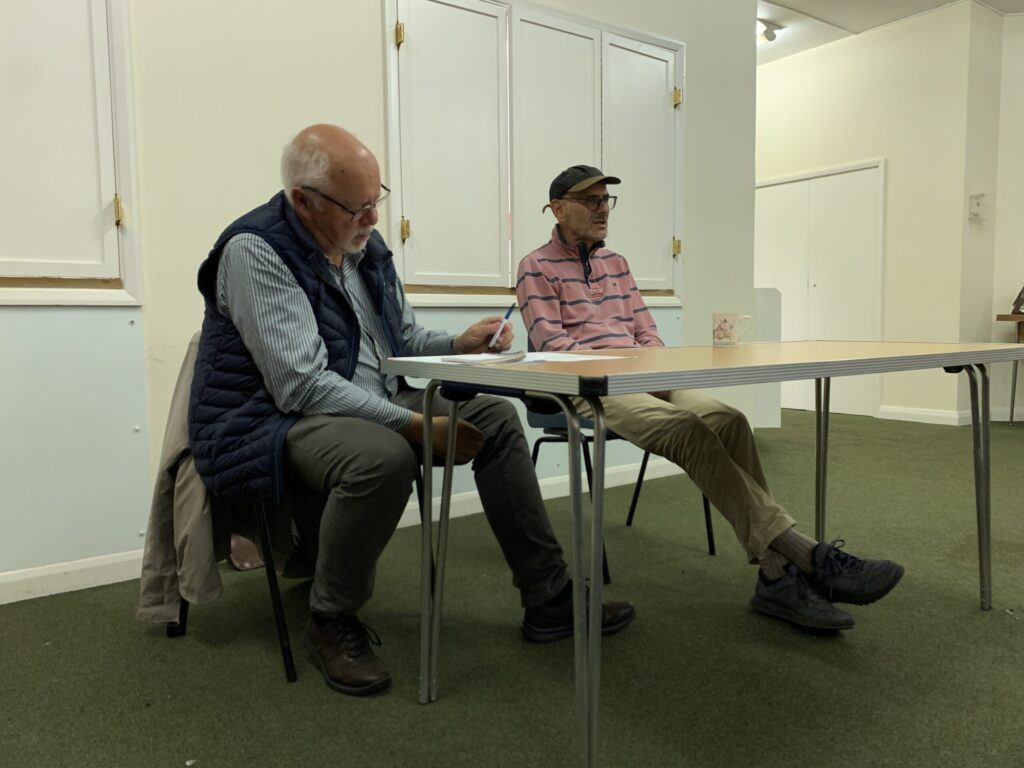
When Coventry Kid Roger Harrabin joined the BBC in the mid-1980s to report on environmental affairs, acid rain was a concern but nobody ever mentioned climate change. Nearly forty years on, after a career tracing the global impacts of man-made warming, he has the starkest of messages to deliver.
“All we can do now is make things less bad,” he tells the audience at the Society’s first autumn meeting at St John the Baptist Church Hall. “We can’t go back.”
With China and India, currently major contributors to global warming, unwilling as yet to give up fossil fuels, and the British government also now appearing to row back on earlier commitments, Dr Harrabin (he’s now an Honorary Fellow of his old college at Cambridge, St Catherine’s) believes all the talk from governments about tackling the climate emergency is heading nowhere.
“If what’s happened this year, with fires and heatwaves and floods, represents a rise in global temperatures of 1.2 degrees, what’s going to happen when we have a three degree rise. We just don’t know.”
Born in Holbrooks, Roger grew up in Styvechale and attended King Henry VIII School, where he was a close friend of Two Tone founder Jerry Dammers. After university he returned to Coventry and joined the Evening Telegraph, intending, as he says, to learn more about his home city. He started writing about Coventry’s Asian communities and began to take an interest in environmental matters after a chance meeting with one of the founders of the Coventry-based People Party, fore-runner of today’s Green Party, in a Spon Street pub.
While he acknowledges that Coventry now is trying at least to come to terms with climate change and the need to find local solutions to it, he’s not a great fan of the city’s flagship Very Light Rail project. Unless something can be done to cut traffic on the routes VLR will use, it will simply end up being held up by congestion, he believes.
Asked what we as individuals can do to cut our own contribution to the problems of global warming, Roger cites insulating our homes better, eating less red meat and turning down our home heating thermostats by two degrees. If we have to use a car, we should also be driving more slowly, not more than 20 miles an hour in built-up areas.
The problem is, he thinks, that the politicians are scared to enforce such measures. Britain would be in a better place environmentally now if the country had fully committed to nuclear energy back in the 1970s. but the public was frightened by nuclear then and no politician dared to go ahead with it. Now it is hugely expensive and will take too long to develop.
His retirement last year as the BBC’s environment analyst has allowed him freedom from the Corporation’s rules on impartiality to say what he really thinks. And he doesn’t pull any punches.
Climate scientists, he says, are no longer worried or concerned about what’s happening. They are actually scared!
